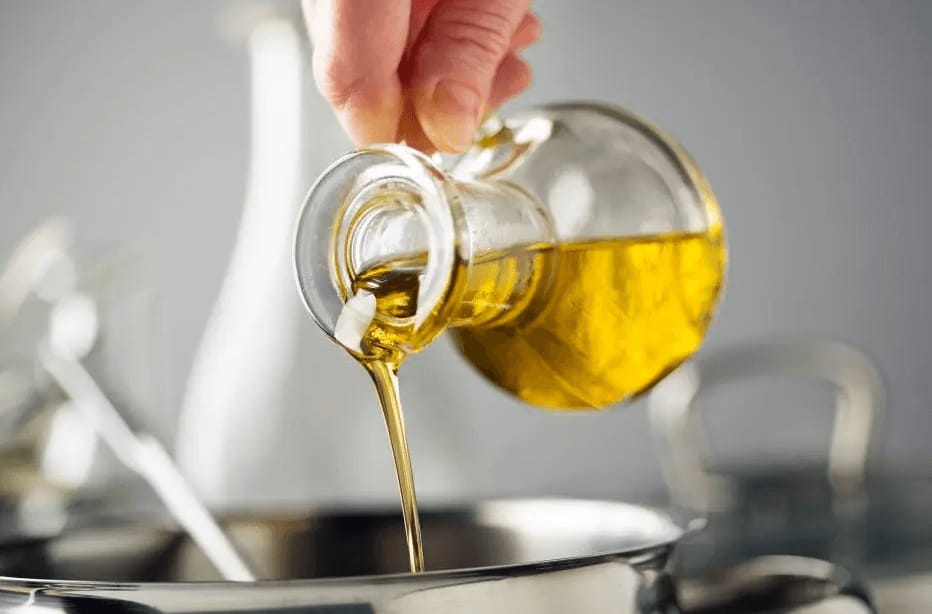- Thriving Guide
- Posts
- Olive Oil Is Safe for Cooking Despite Its Smoke Point
Olive Oil Is Safe for Cooking Despite Its Smoke Point
Experts say it’s time to stop fearing olive oil in the kitchen here’s why it holds up better than you think.

Olive oil has long been a pantry staple, but when it comes to cooking with it, especially over high heat, many home chefs hesitate. The reason? A widespread belief that olive oil’s “low smoke point” makes it unsafe or unstable when heated.
But current research and expert insights suggest that this reputation may be undeserved. In fact, extra-virgin olive oil (EVOO) is not only safe to cook with, but also one of the most stable oils when exposed to heat thanks to its natural antioxidants and monounsaturated fats.
Oxidative Stability Is What Really Matters
While smoke point refers to the temperature at which an oil visibly smokes, experts now say oxidative stability how well an oil resists breaking down under heat is a more important factor in determining its cooking safety.
When oils oxidize, they form toxic compounds known as polar compounds, which have been associated with inflammation and other negative health effects. A 2018 study compared common cooking oils and found that extra-virgin olive oil produced the fewest harmful polar compounds, even when heated repeatedly.
Interestingly, refined oils, which are often promoted for high-heat cooking due to their high smoke points, were more prone to degradation than unrefined ones like EVOO.
EVOO's Antioxidants Act as Heat Shields
Extra-virgin olive oil’s resilience comes from its high content of antioxidants, especially polyphenols. These compounds help protect the oil from breaking down during cooking and even extend its shelf life.
In one study, researchers noted that while some nutrients in EVOO degrade with heat, the oil’s rich supply of monounsaturated fats which are more stable than polyunsaturated fats combined with antioxidants, makes it a strong choice for cooking across a range of temperatures.
By contrast, oils high in polyunsaturated fats, such as soybean or corn oil, tend to oxidize faster when heated, producing more harmful byproducts.
EVOO's Smoke Point Isn’t As Low As You Think
Despite common belief, extra-virgin olive oil’s smoke point is not alarmingly low. In fact, it varies widely, with some decomposition stages occurring between 260°C and 450°C (500°F to 842°F) well above typical stovetop cooking temperatures.
For perspective:
Sautéing on the stove usually happens around 160–200°C (320–392°F)
Pan frying reaches about 180–200°C (356–392°F)
Oven roasting ranges from 190–230°C (375–450°F)
Unless you're deep frying or roasting at extreme temperatures, EVOO holds up just fine in most home kitchens.
When to Choose a Different Cooking Oil
While EVOO is stable for most cooking tasks, deep frying or high-temperature roasting may push it past its threshold. At these higher temps, the oil may begin to smoke, change flavor, or form undesirable compounds.
In these cases, opt for oils with very high smoke points and neutral flavors, such as:
Refined avocado oil
Safflower oil
Refined olive oil
Peanut oil
Canola or corn oil
These oils are more suitable for sustained high-heat cooking, but keep in mind that they may be more refined and less nutrient-dense than EVOO.
Bottom Line: Don’t Fear the Olive Oil
Extra-virgin olive oil is not only safe to cook with it’s often a better choice than many highly processed oils. Thanks to its antioxidant profile and high monounsaturated fat content, EVOO remains chemically stable even under heat.
So go ahead: sauté, pan fry, or simmer with EVOO. Just save the deep frying for another oil.
If this article changed the way you think about cooking oils, subscribe to our newsletter or share it with someone who still avoids olive oil.